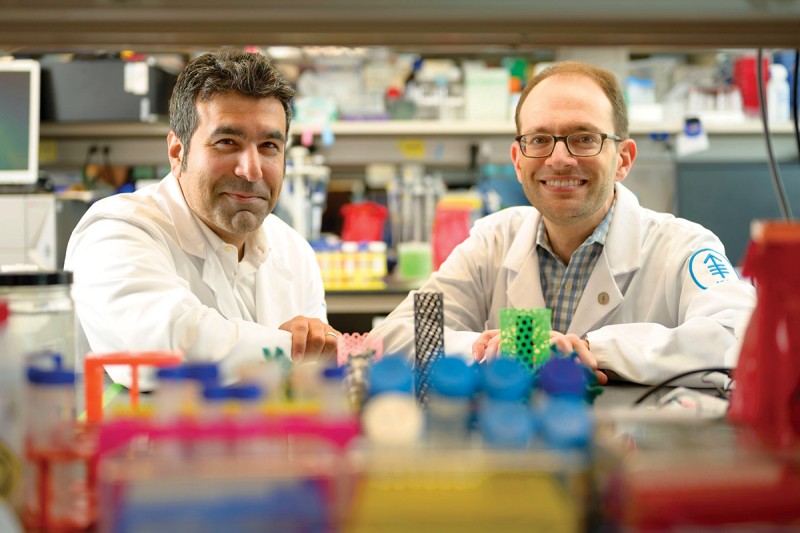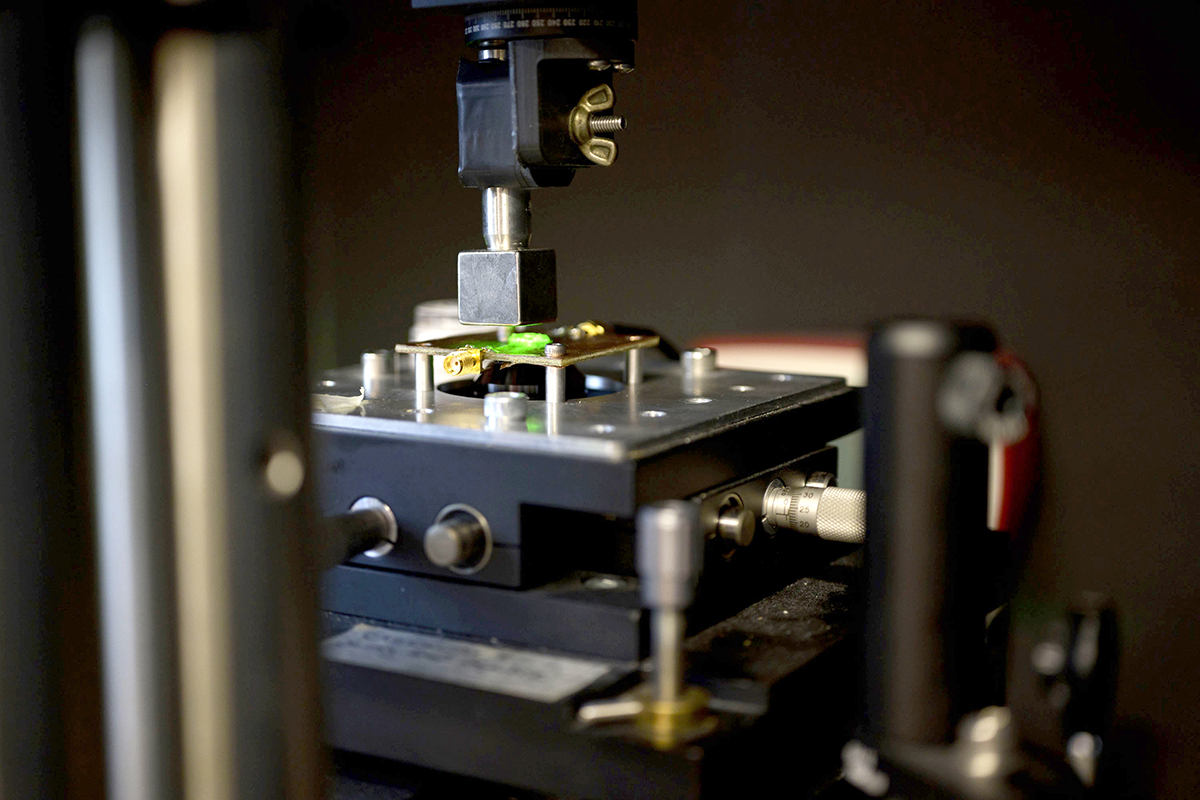
It’s the power of serendipity. In science, great ideas often come from chance encounters between two experts from different worlds.
That’s what happened one afternoon a few years ago in the lobby of the Zuckerman Research Center, the 23-story home to lab researchers at Memorial Sloan Kettering Cancer Center (MSK). Biomedical engineer Dan Heller, PhD, started up a conversation with a gynecologic oncologist about his work using nanotechnology to develop tiny implantable sensors to better detect disease.
“I learned there is a desperate need for a better way to detect ovarian cancer,” Dr. Heller recalls. “This cancer is so deadly because it’s very difficult to diagnose early.”
The impromptu conversation kicked off a collaboration. Eight years later, Dr. Heller’s lab — working in consult with gynecologic surgeon Kara C. Long, MD, MSc — had designed and begun testing a device that might spot the first signs of ovarian cancer by detecting a molecular fingerprint in blood samples.
“This is what can happen when you marry engineering skills with urgent medical needs,” says Dr. Heller, head of the Cancer Nanotechnology Laboratory at the Sloan Kettering Institute. “In a biomedical center like MSK, you are surrounded by problems to solve and questions to answer.”
Now a first-of-its-kind PhD program in cancer engineering will enable aspiring scientists to tackle tough cancer problems. The Pat and Ian Cook Doctoral Program in Cancer Engineering, made possible by a generous gift from MSK Trustee Ian Cook and Pat Cook, was launched in 2023 by MSK’s Gerstner Sloan Kettering Graduate School of Biomedical Sciences (GSK) under the leadership of GSK Dean Michael Overholtzer, PhD. The visionary new program joins the elite Cancer Biology PhD Program, which began in 2006.

“There are many engineers and physical scientists who love making new technologies but would like to go a step further and put them into practice,” says Dr. Heller, program Co-Director.
His equally passionate Co-Director, Kayvan Keshari, PhD, says this approach will transform cancer discovery for the future. “We want budding researchers to be aware that this amazing opportunity exists in a way that was not available when Dan and I were starting our careers,” Dr. Keshari says. “People focused on engineering tend not to have a cancer institution on their radar. Until someone comes here, it’s hard to really appreciate the power of this place. We want them to know they can come here and do truly astounding things.”
Students will have unparalleled access to cutting-edge tools such as nanomaterials, CRISPR gene editing, atomic force microscopes, 3D printers, and organoid models of cancer.
And, they’ll have the opportunity to engineer brand new technologies to accelerate discovery.
Drs. Heller and Keshari, both at the Sloan Kettering Institute, are inspiring instructors, eager to mentor students in the first class from a variety of backgrounds and disciplines, including engineering and the physical sciences.
“In most institutions, you can develop amazing technologies but never translate your ideas,” Dr. Keshari says. “At MSK, you might actually be able to do something that can change someone’s life.”
Dr. Keshari holds the Fred Lebow Chair.